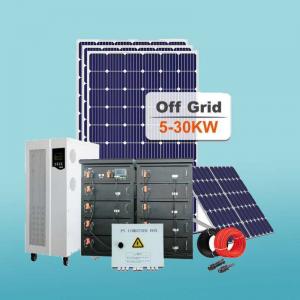Lithium Battery for Caravan
Whether it is the gorgeous caravan of the circus in the fairy tale, or from the combination of horses hundreds of years ago to the modern RV, the evolution of history has only changed the details of the appearance.The caravan is suitable for everyone. You can drive somewhere on weekends for an economical vacation; or work in it; it can also be a place for children to have fun; it can also become a mini hideaway. Life on the caravan is simple and pleasant, and it often makes you pay attention to valuable life details that are usually easily overlooked. Reducing the impact of our daily lives on the environment has increasingly become a top priority. Caravans are suitable for this trend. At the same time, they can be decorated according to their own taste without too much budget.
Many friends consider these issues when choosing batteries for their caravans:
· Which battery is best for my caravan?Traditional lead-acid batteries, or lithium batteries?
· Can your lithium battery solve the electricity problem of my caravan?
· What kind of lithium battery and how much capacity can meet the daily power consumption of my caravan?There are many ways to maintain electricity when caravans are off-grid, and batteries, solar energy, and generators are widely used. However, the use of heavy-duty generators outdoors is noisy and not portable, so most RV friends will prefer the solution of “lithium battery + inverter + solar panel”.
This depends on the total power of electricity on the caravan. A caravan generally have electric rice cookers, water heaters, lighting, TVs, audio equipment, etc. Some caravans also have built-in air conditioning. 400Ah is recommended for caravan without air conditioning, and 600-800Ah (not less than 400Ah) is required for caravan with air conditioning. The above battery capacity is subject to the 12V lithium battery pack.
(1) More available capacity
Unlike lead-acid batteries that rarely discharge more than 50% of their power, lithium batteries can regularly discharge 80% or more of their rated capacity. For example, a 100Ah battery-if it is a lead-acid battery, you can only get 30~50Ah of power, but with lithium batteries you can use 80Ah or more. It is about twice as much as an equivalent rated lithium battery pack, just like using an AGM battery.
(2) Long cycle life
The cost of lithium batteries is about three times that of AGM batteries, but the longer life makes lithium batteries worth the money. Lithium batteries can be charged 5000 times and retain 80% of the original capacity, while the best deep-cycle AGM batteries usually only cycle 500-1000 times.
(3) High current output
Lithium batteries can be powered down at high current rates without losing Ah capacity, while lead-acid can be reduced to 40% of the Ah rating at high discharge rates. This means that lithium battery packs are much better when powering high-current loads such as microwave ovens or air conditioners.
(4) Fast charging
The lithium battery can be quickly charged to full capacity because it can reach 0. 5C while the lead-acid is only 0. 2C. And the absorption mode is in the final stage of charging, not the typical 80% of lead-acid. This greatly reduces the charging time.
How do you know if the lithium battery you use is good or not?
The quality of a lithium battery is easy to judge from its electrical density and weight. A lighter battery means its huge electrical density. The heavier the battery, the worse the situation. It may be a second-hand battery, or it itself is an inferior battery.
Note
Before parking and sealing the box, carefully check whether the power supply is turned off and charge the battery every three months.
(2) Battery storage:
The environment in which lithium batteries are stored should be dry. It is not allowed to place the battery in places where it may leak, such as on the ground, so as to avoid short-circuiting the battery caused by leaking heating and rain windows.
The battery pack should be kept away from combustible, flammable, and explosive items, and the old and new batteries should be stored separately. The battery should be stored with the class D fire extinguisher and respirator.
(3) Do not use high-power electrical appliances at the same time:
3000W is designed for most RV power supply systems, which can withstand the operation of high-power electrical appliances such as air conditioners and induction cookers. However, in order to protect the power supply system, attention should be paid to the power limit when using it, so as not to use high-power electrical appliances at the same time when turning on the air conditioner, such as induction cookers or hair dryers. Excessive current may cause the protection of the rv power supply system, resulting in power failure.





